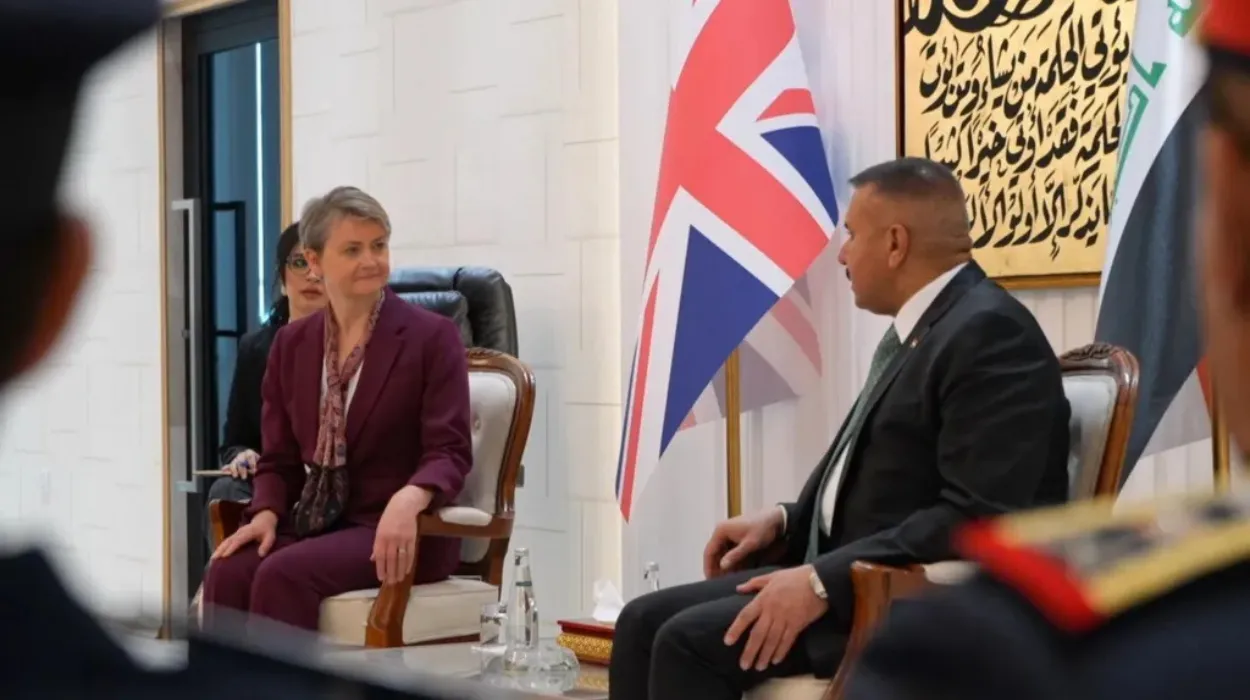London (Parliament Politics Magazine) – Britain and Iraq have signed a historic deal to crack down on people-smuggling gangs, involving joint operations and enhanced border security. The return of Iraqi asylum seekers to their home country will also be part of the agreement.
Sir Keir Starmer’s government and Iraq have signed an unprecedented agreement to target the people-smuggling networks responsible for migrants crossing the Channel in small boats.
According to Home Secretary Yvette Cooper, the agreement will involve close collaboration between Iraqi intelligence and police forces to fight organized crime, ensure quicker deportations of rejected asylum seekers and set up a new task force.
In Baghdad, Ms Cooper met with federal ministers and also engaged with regional leaders in Kurdistan, where a large number of smuggling gangs are based.
The British government stated that at least £800,000 of UK funding would be allocated for training, supporting the Kurdistan regional government and tackling organized crime.
The Home Office insisted that smuggling networks operating in Iraq and Kurdistan have been involved in trafficking thousands of people, including across the Channel to the UK.
Martin Hewitt, the government’s new Border Security Commander, accompanying Ms Cooper met his Iraqi counterpart. Both men will play a significant role in making the agreement successful.
Border Security Commander, Martin Hewitt said, “Enhancing our border security requires international efforts, which is why collaboration with Iraq and the KRI is so important. This work is only going to improve, which means smuggling networks should be on notice that we are coming after you.”
The key event in Baghdad was a half-day meeting with her Iraqi counterpart, Abdul Amir al-Shammari.
Ms Cooper was invited as the guest of honour at a parade of more than 2,000 newly trained Iraqi officers while visiting a police college.
Home Office minister Yvette Cooper stated, “There are smuggler gangs profiting from dangerous small-boat crossings whose operations stretch back through northern France, Germany, across Europe, to the Kurdistan region of Iraq and beyond. Organised criminals operate across borders, so law enforcement needs to operate across borders too.
Iraq is one of the top 10 countries for Channel crossings, but fewer than 30 Iqrais were sent back to Iraq in the year ending June.
BBC reported they spoke to Shukriya Badar, a mother of five boys and two girls from Erbil, her son Baryar Mohamed used people smugglers in an attempt to reach Britain. He died in the Channel when his overloaded boat sank in stormy sea. He was just 23 years old.
She stated, “I wish they would die all these smugglers. They deserve to die for every tear l’ve shed for my son, for every tear other mothers have shed for their children.”
The new UK-Iraq deal aims to enhance cooperation between the two governments.
The British government is also supporting social media campaigns on different social media platforms. The aim is to deter Iraqis from coming to the UK by sharing real stories about “the risks and realities of travelling to the UK irregularly.”
While the UK government said this international collaboration will represent a new direction for the UK government in tackling irregular migration. Britain through the Border Security Command is working on a holistic strategy giving law enforcement the necessary powers and ensuring coordination between enforcement agencies across borders.

